
At the beginning of the year, I realized that I wanted to change something very important in my life, and decided that work would be this important. It was a pretty quiet time: I warned the team, dust off my LinkedIn profile , watched a few videos about job searches, figured out which parts of the world I would like to visit, and started checking vacancies. At the same time, I figured out what I can do and what requirements I have for a new place of work.
I realized that I can do a lot in the areas of mobile app development and promotion, machine learning and innovation in international companies. If we talk about corporate culture, then I was brought up on cool books like "Opening the organizations of the future", "Management 3.0" and "Principles" and tried to cultivate this culture in ABBYY Mobile... Therefore, I realized that I would not be able to work in politicized and bureaucratized corporations with the position of "I am the boss, you are a fool." I longed for real openness, meritocracy, and constant growth.
Therefore, we immediately had to refuse rather honorable offers from large companies (there were about five of them). Then I realized that I need to decide first of all with companies, and then look at suitable vacancies. As a result, I made a list and wrote to friends who work in them. I strongly advise you to have a circle of such people. I usually met at conferences and speeches, plus there is a chat of former colleagues and a fairly voluminous list of "friends" in social networks. As a result, it turned out to write directly to almost every company of interest.
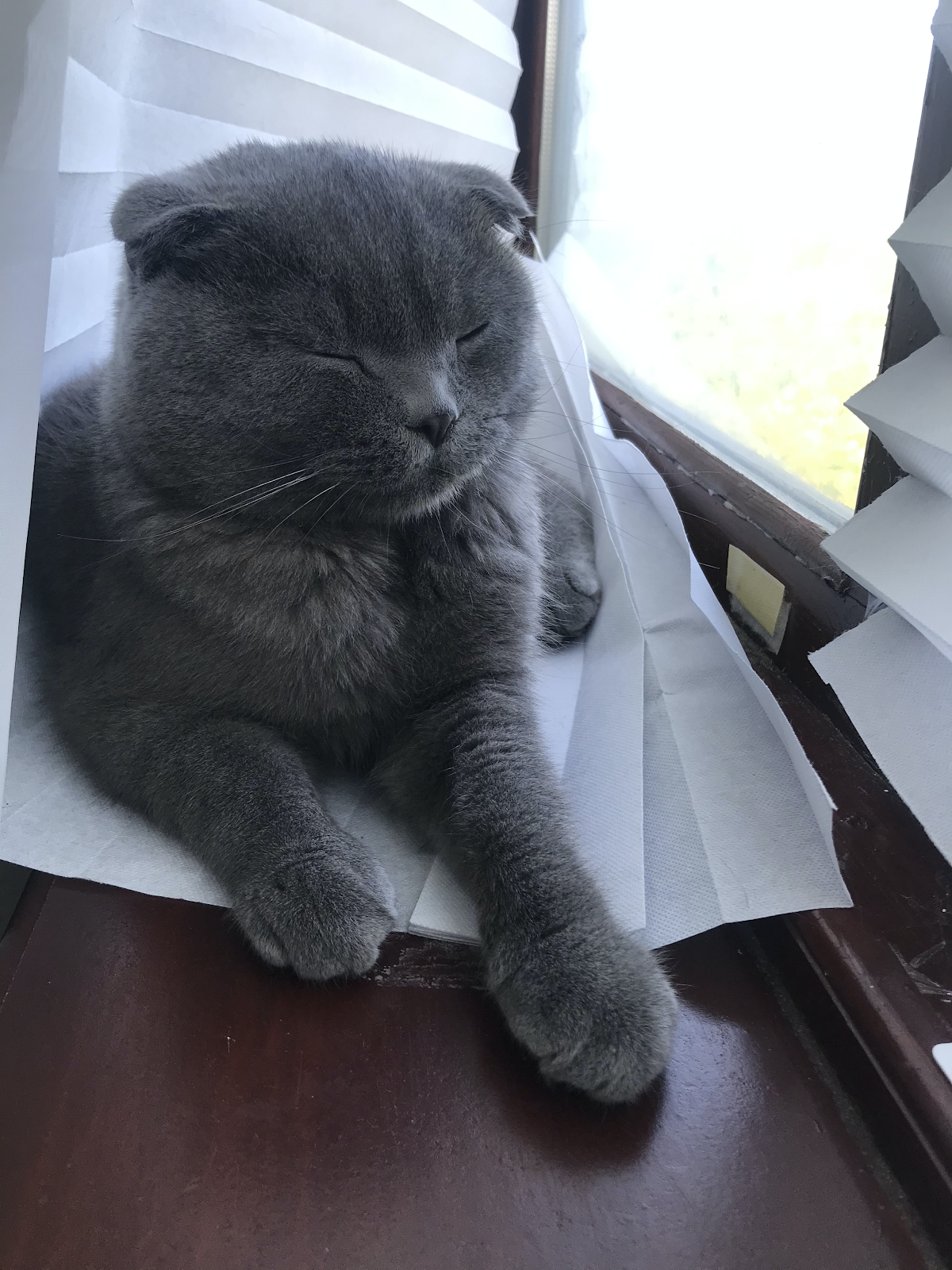 Since we (a family with 2 children and a Scottish cat) were not attached to Moscow and were already a little tired of it, we considered proposals in different large cities. My wife and I studied and lived in Krasnodar for a long time, the first child was born there, and then in 2012 I was invited to work on Olympic applications in Moscow. It was very difficult to return, for example, to Krasnodar and see absolutely the same problems as 8 years ago ... Therefore, we did not consider this city. With one child completing 3rd grade this year and the other just being born, the quality of medicine, education and services were still very important. So we considered options from the tops of all ratings and not far from Europe: Moscow, St. Petersburg, Nizhny Novgorod, Kaliningrad, Sochi, Kazan and relocation abroad.
Since we (a family with 2 children and a Scottish cat) were not attached to Moscow and were already a little tired of it, we considered proposals in different large cities. My wife and I studied and lived in Krasnodar for a long time, the first child was born there, and then in 2012 I was invited to work on Olympic applications in Moscow. It was very difficult to return, for example, to Krasnodar and see absolutely the same problems as 8 years ago ... Therefore, we did not consider this city. With one child completing 3rd grade this year and the other just being born, the quality of medicine, education and services were still very important. So we considered options from the tops of all ratings and not far from Europe: Moscow, St. Petersburg, Nizhny Novgorod, Kaliningrad, Sochi, Kazan and relocation abroad.
The interviews took place quite slowly, including foreign ones. At this time, the crisis and border closures only flared up. It was fun to see how windows of opportunity gradually close and companies stop hiring right in front of your eyes when there is literally the last step to take.
Interviews in Wrike
I had a very good opinion of Wrike due to the awesome Wrike TechClub events and product conference presentations, plus I was interested in project management systems, anti-procrastination, and productivity. I came across a vacancy for a product manager in AI, and I wrote to a friend in the company to inquire and get a recommendation for HR.
Since I am based in Moscow, and the central Russian office is in St. Petersburg, all the main interviews took place online. At first there was a fairly simple interview with HR: on general awareness and compliance with skills. Then - with the product manager. After exchanging thoughts on the development of artificial intelligence and talking about my skills, we ended up with a rather unexpected question: "What drives me?" I replied that I want to make colleagues and users happy and improve processes. I've spent a lot of time on this at ABBYY (again, link to the article ) and would like to continue to improve the environment around me in Wrike. Fortunately, no one was against it.
Then there was a rather complex and voluminous test task, which forced me to dig deeper into the sources, evaluate competitors, and recall all possible methods of backlog prioritization and analysis. But to my great luck, this job helped me get up to speed very quickly and saved a few hours on an important assignment in my first months at Wrike. Then we talked with the ML-team and discussed quite working situations.
Then there was a rather interesting logic test. When they sent me the materials for preparation, and I tried to pass them, I realized that I got it ... But it turned out that on the real test everything is not so scary. At ABBYY, we also tested people for logic in order to estimate how much "the head cooks" in general, so this is a good option for quickly assessing potential problems.
The last stage is an interview with a new machine learning lead from the USA and Head of Product. It was scary, because I did not consider myself to be the most advanced in interviews "in the Western" way: with discussion of work cases for various necessary soft skills, impeccable self-presentation and adherence to the fine line of political correctness. But this feeling quickly passed, and the conversation turned out to be friendly and interesting. Before Wrike, the lead worked at AI Evernote, which I knew a lot about, so we hit it off.
All these stages were pulled for 2 months, but since I was not particularly eager to fly out of the nest and calmly completed the work, I felt comfortable.
Relocating to Wrike and Getting Started
And at the end of April, I left my job at ABBYY (HR services performed well even in the midst of the crisis) and "moved" to Wrike. It was pretty funny because I just moved from one laptop to another. The offices were already closed at that time, so a working laptop, documents and a welcom-pack were sent to me by courier.

Such a box was brought from St. Petersburg to Moscow to start the

Welcome-pack with a souvenir (I already got my hands on the MacBook Pro and accessories with documents)
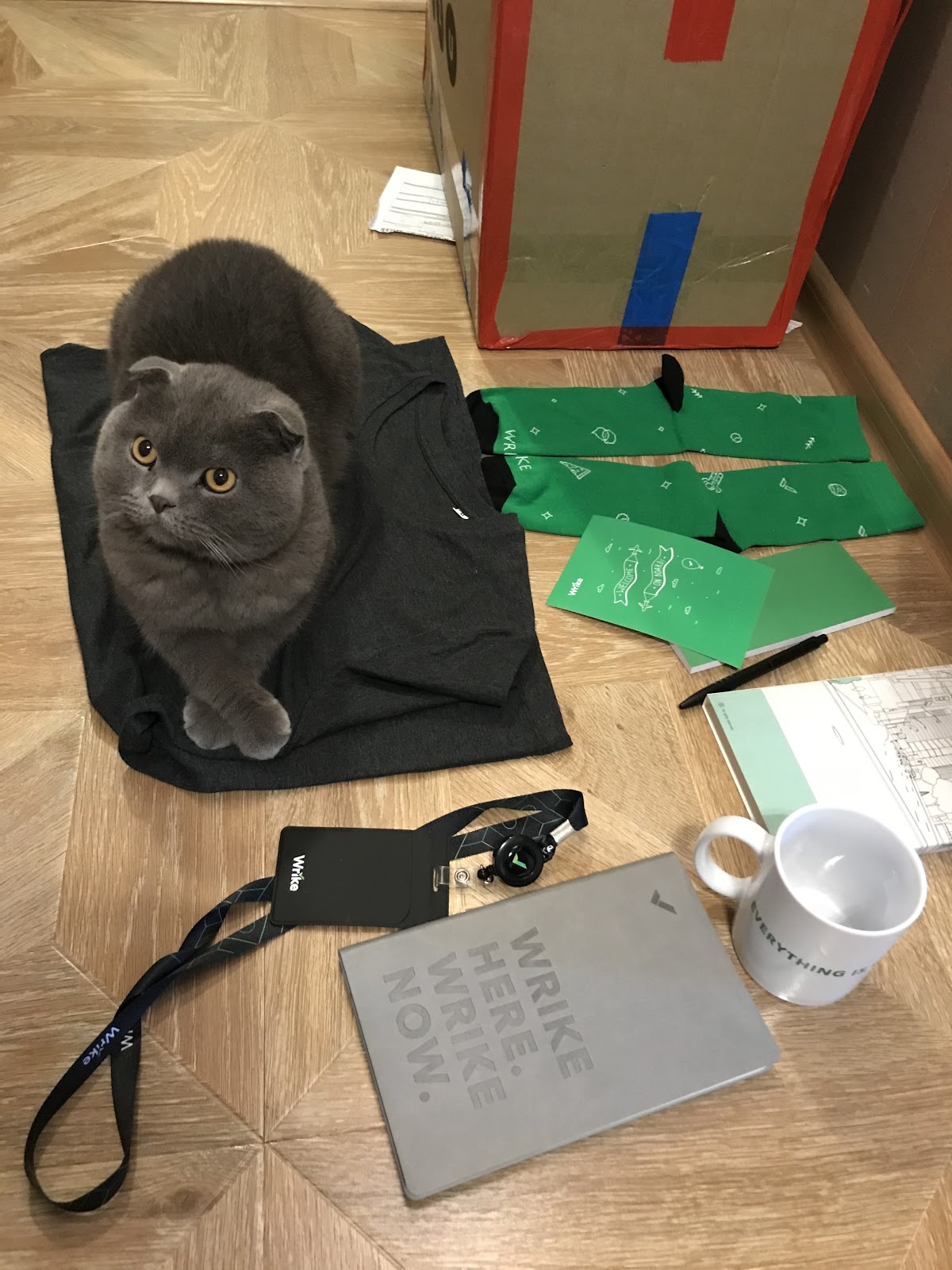
Kitty liked the gray T-shirt most of all
I didn't really want to move to St. Petersburg in the middle of the school year , so the crisis and the closings were just in the subject. Working from home allowed us to calmly finish our apartment rent, as well as finish the music school and regular school for our son.
IT people are pretty fortunate, because the job often involves simply having a computer and a suitable internet connection. As a result, the dream “to work anywhere” (and I constantly insisted on opening an additional office in Sochi in order to move there in the most depressive months) came true in such a strange way. The crisis and the closure of offices made it possible to leave Moscow to visit their parents in the Krasnodar Territory and enjoy berries, fruits and the sun almost every day.

Of course, I took care of the Internet in advance and spent 200 megabits GPON in my parents' homes. With a mobile (even 4G) signal, zoom meetings were still much

worse.I was not the only one who enjoyed it
As a result, all the activities for the newbie were remote - meeting the team, Welcome Breakfast (meeting breakfast for new employees at the nearest restaurant), Wrike Quest (a set of tasks for getting to know Wrike (a product, not a company)), training trainings, design VHI (the company also pays for insurance for children and half of the wife's VHI).

All activities within the company are logged into Wrike (haha), so overall it was a good training on its own product
Moving to St. Petersburg

Despite the curtailment of flights, 4 pieces flew regularly between
St. Petersburg and Krasnodar and the prices were much lower than last year. Since the search for a school and a music room for a child was our priority, we decided that we had to be in St. Petersburg at least in mid-July in order to slowly find an apartment and try to get into a good gymnasium / lyceum and music school. Fortunately, Wrike gives you the opportunity to live in a corporate apartment for 1 month and pays tickets for all family members + "lift" at a new place. A month is enough to search for family housing.
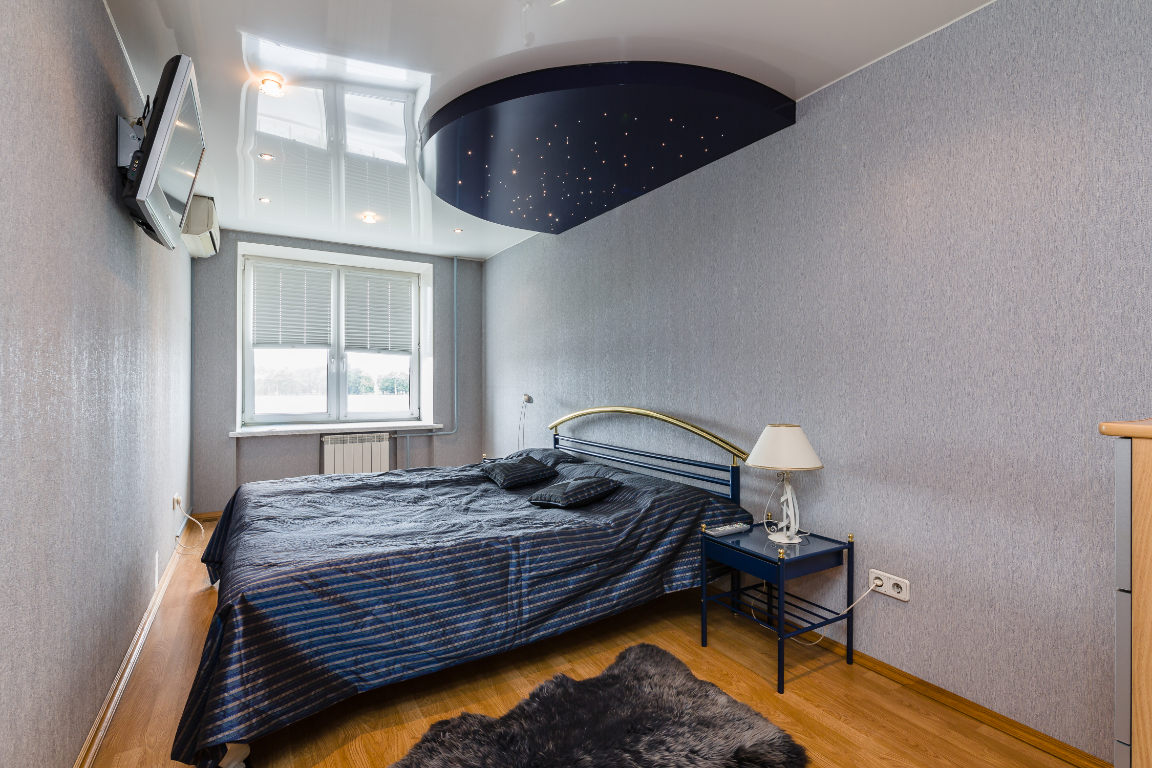
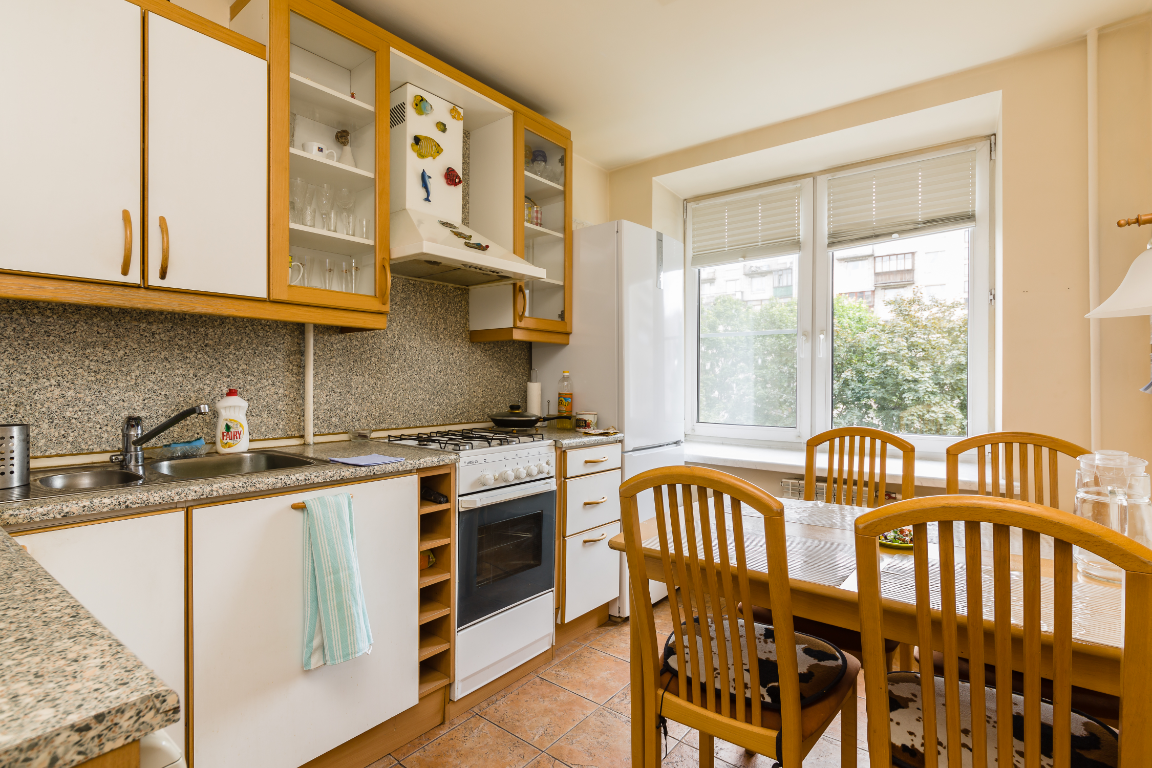
Corporate apartment 7 minutes from the office
In general, getting used to it was easy. In St. Petersburg there are the same awesome Scooter and Yandex.Lavka, Delivery Club and Yandex.Eda, Citymobil and Yandex.Taxi. And also Pyaterochki, Magnets, Crossroads and VkusVill. It is possible to "self-isolate" to move around the city - SmartBike bicycles (60 rubles for half an hour and then 5 rubles per minute) and electric scooters (Molnia and Whoosh liked more, although the prices are not childish and dynamically changing - 45 rubles for a start plus 4/5/7 rubles per minute and 50 rubles per start plus 5/7 rubles per minute, respectively).
The weather, of course, turned out to be much more "harsh" than Moscow and even more so Krasnodar. But the days of warmth and sun were regular, and the beautiful houses and parks gave a feeling of joy. From an unusual experience - bakeries are real on EVERY corner, sometimes several at the crossroads, and, by the way, are quite tasty and inexpensive (after eclairs for 100 rubles in Moscow, I was very surprised at prices of 40-50 in St. Petersburg). And, of course, the beloved Bukvoed, which is still the same cute version of Read-Gorod.
To find an apartment closer to the office, I used the cool features of Yandex.Realty : travel time and a layer of infrastructure. Thus, it was possible to understand near which metro stations to look for apartments and schools.

From these areas of the city, you can reach Wrike in 45 minutes
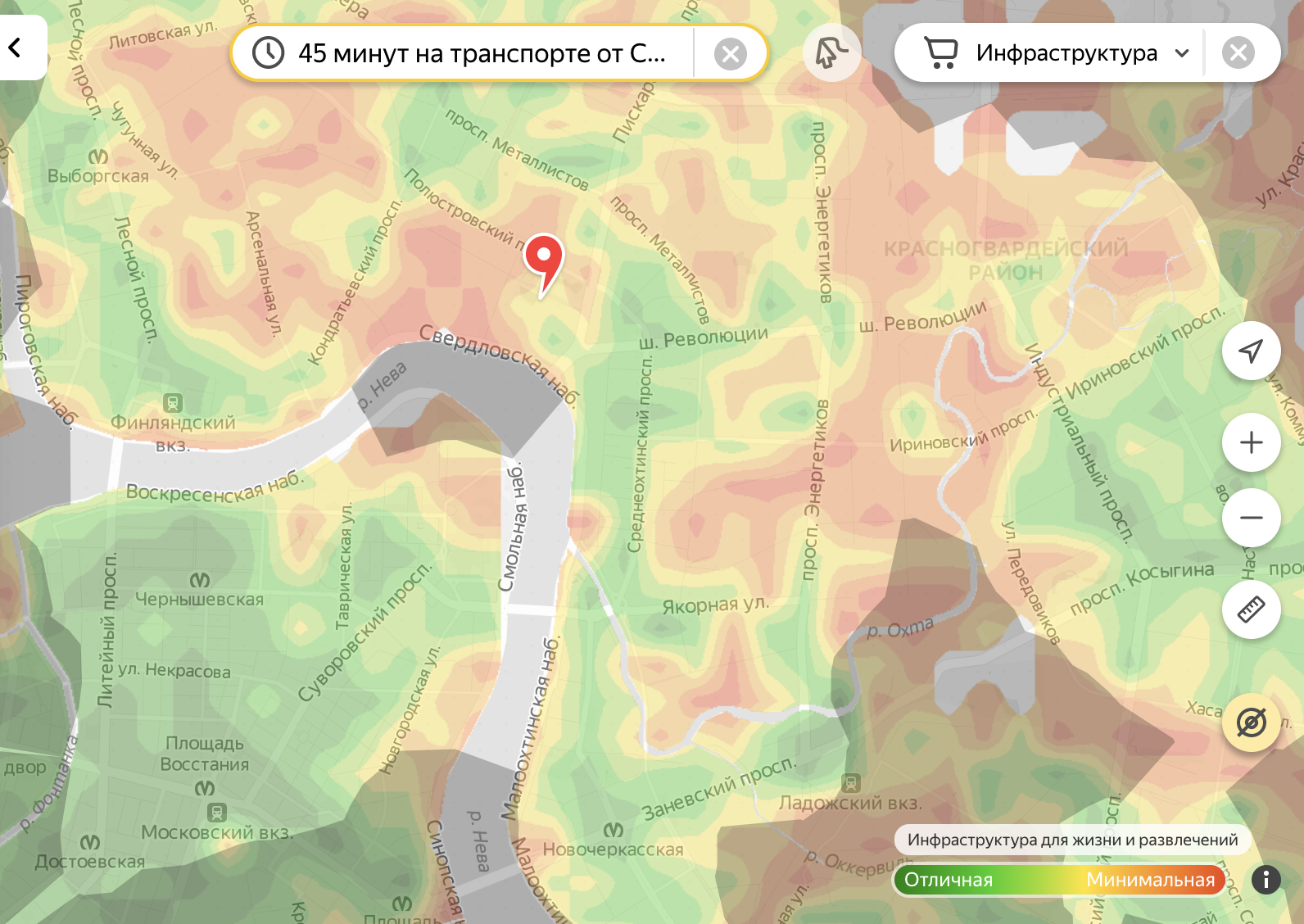
Infrastructure heatmap for life and entertainment. There is also a similar one for transport accessibility. I was
looking for an apartment already in place. Despite attempts to search through acquaintances or all sorts of "no agent" groups, only cyan and avito gave a good stream of options. The coronavirus times hit rentals pretty hard, so there were good options, despite our restrictions on location, the need for temporary registration and consent to a cat.
We previously sent all the things from the Moscow apartment to the warehouse, and then they were already waiting for a signal from us to transport everything to St. Petersburg. Since the company gave a decent amount for relocation, they decided to use the “ Delicate relocation”, And not fence a combination of movers, warehouses and road transport. They were practically the only ones to offer normal logistics of this process, besides, they had a cheaper warehouse in St. Petersburg. In general, it turned out quite well. 4 people packed the apartment in 6 hours (it turned out 100 items).
I searched for music schools using 2GIS (search by type of institution still works better for him. For example, Yandex did not find the Music Lyceum, although in fact it is a music school). Everywhere you need to pass the exam, but admission is also quite transparent - apply and come to the exam at the specified time.
Things were more complicated with schools. I wanted to get into a really good one. As a result, I used the USE and USE ratings as a working tool.ratings of the Committee on Education . I crossed out schools that did not fall into the zones of residence above, then sorted them by the number of "nominations" and average place and received a list of 6 class schools, gymnasiums and lyceums. Then there was “old school” phone calls, motivation letters, meetings with directors, and now we managed to get to a good gymnasium not far from the metro and from work.
Moving with a cat has also become much easier. If earlier a certificate from veterinary medicine was no longer required for railway transportation in Russia, now it is also for air transportation. At first, out of old memory, I went to the state veterinary clinic, where they showed me the printouts of the law that I had come in vain, but it was so recorded in the passport that the cat seemed healthy during the examination. Further on the day of departure, I ran to the veterinary service of the airport, where I interrupted the employee's lunch, who looked sadly at my documents and also asked what I was doing here, because I had to fly across Russia. Surprised, he returned back and checked in "baggage" for the flight without any problems. Previously, all these procedures took quite a long time.
Since in St. Petersburg the situation in connection with the coronavirus was so-so, it was decided to open the office only for those in great need, no more than 90 people working in individual offices (by the way, the distribution of teams by offices, and not total open space, when compared with other companies, was also pleasing ). And, of course, everyone continued to pay extra for food on a bank card, instead of a special one for meals. After discussing with the team, I decided to work "from home" for now. But the office, as a whole, is already ready to receive guests, and so far there were even 2 times less available seats.




Adaptation
Remote stress is present in everyone. It's nice that modern companies are trying their best to fix this. This was the case with ABBYY and Wrike. At ABBYY, I really liked TED Friday with watching a favorite video of one of my colleagues and discussing ideas from there, as well as presentations by colleagues on various educational topics.
I showed one of my favorite videos there - Shawn Achor: The happy secret to better work | TED Talk .

The secrets are quite simple, but also very difficult to integrate into life.
It was nice to see similar activities in Wrike. Several cool events took place during the coronavirus quarter.
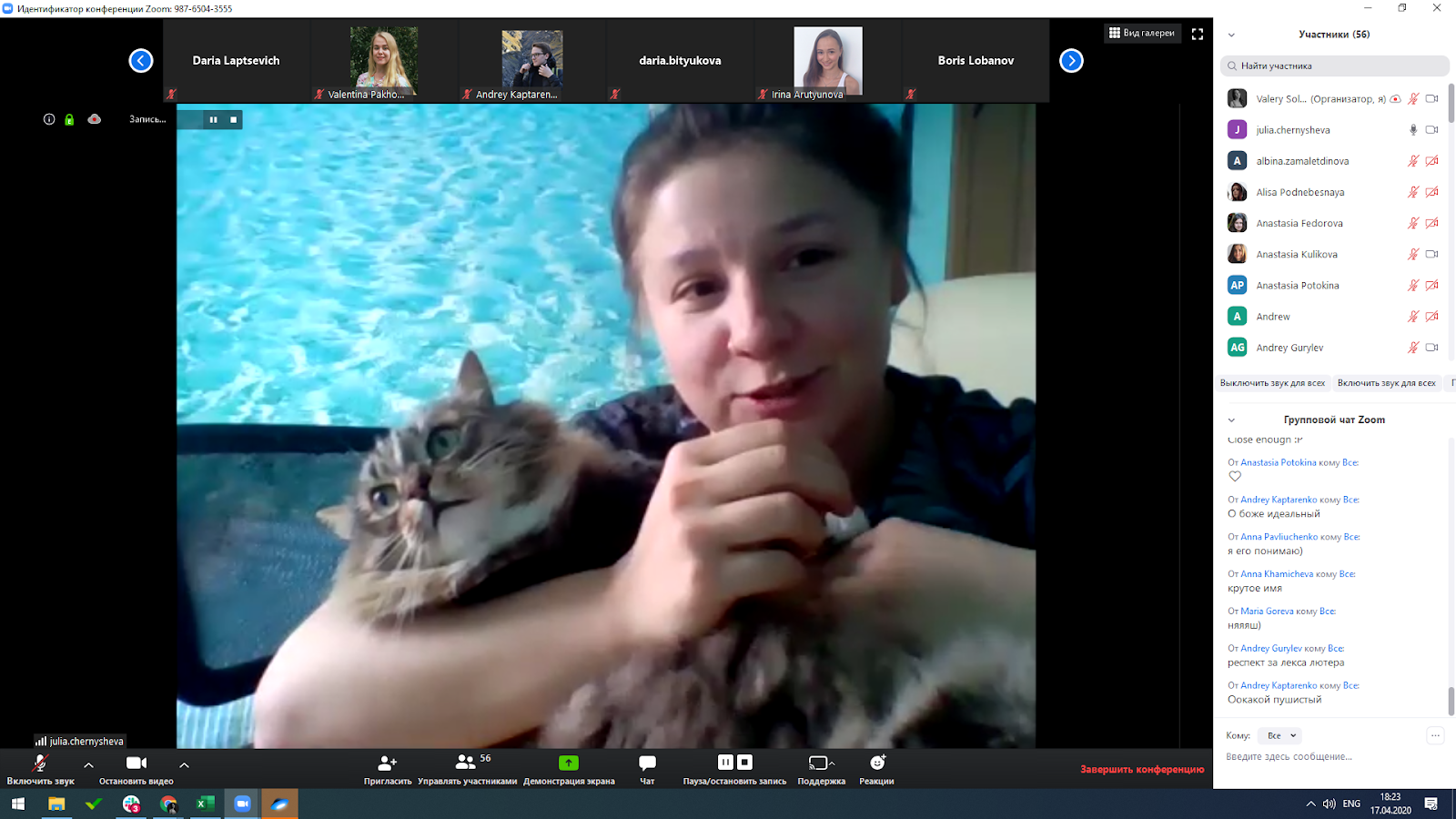
Acquaintance with colleagues' pets
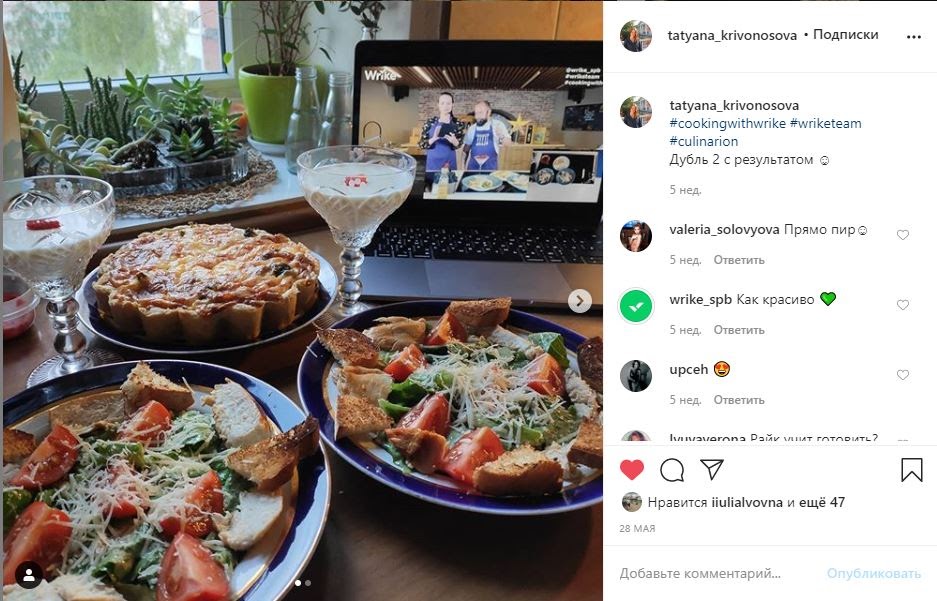
Culinary master class Musical apartment house

with colleagues
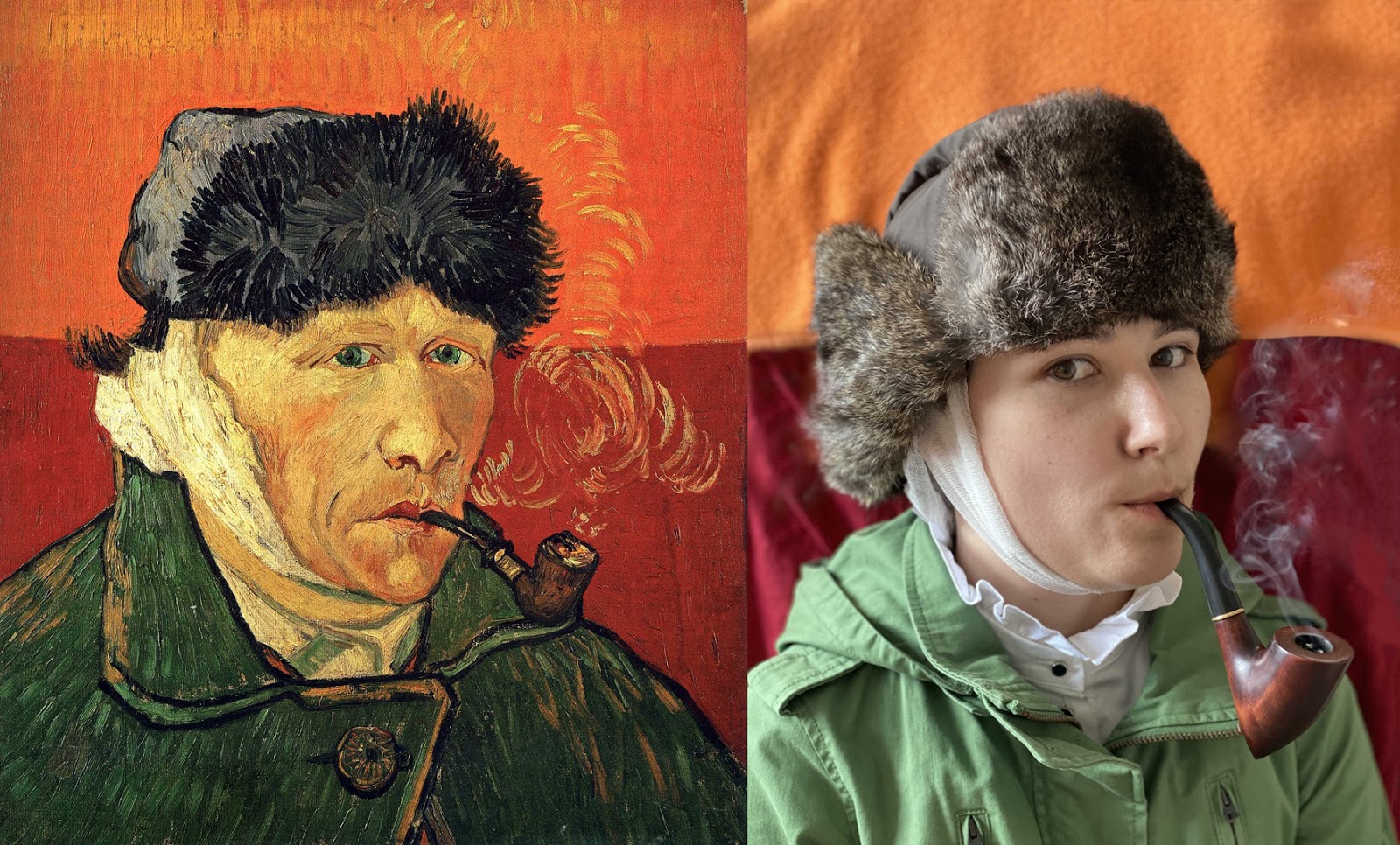
Imitation of artists 'paintings
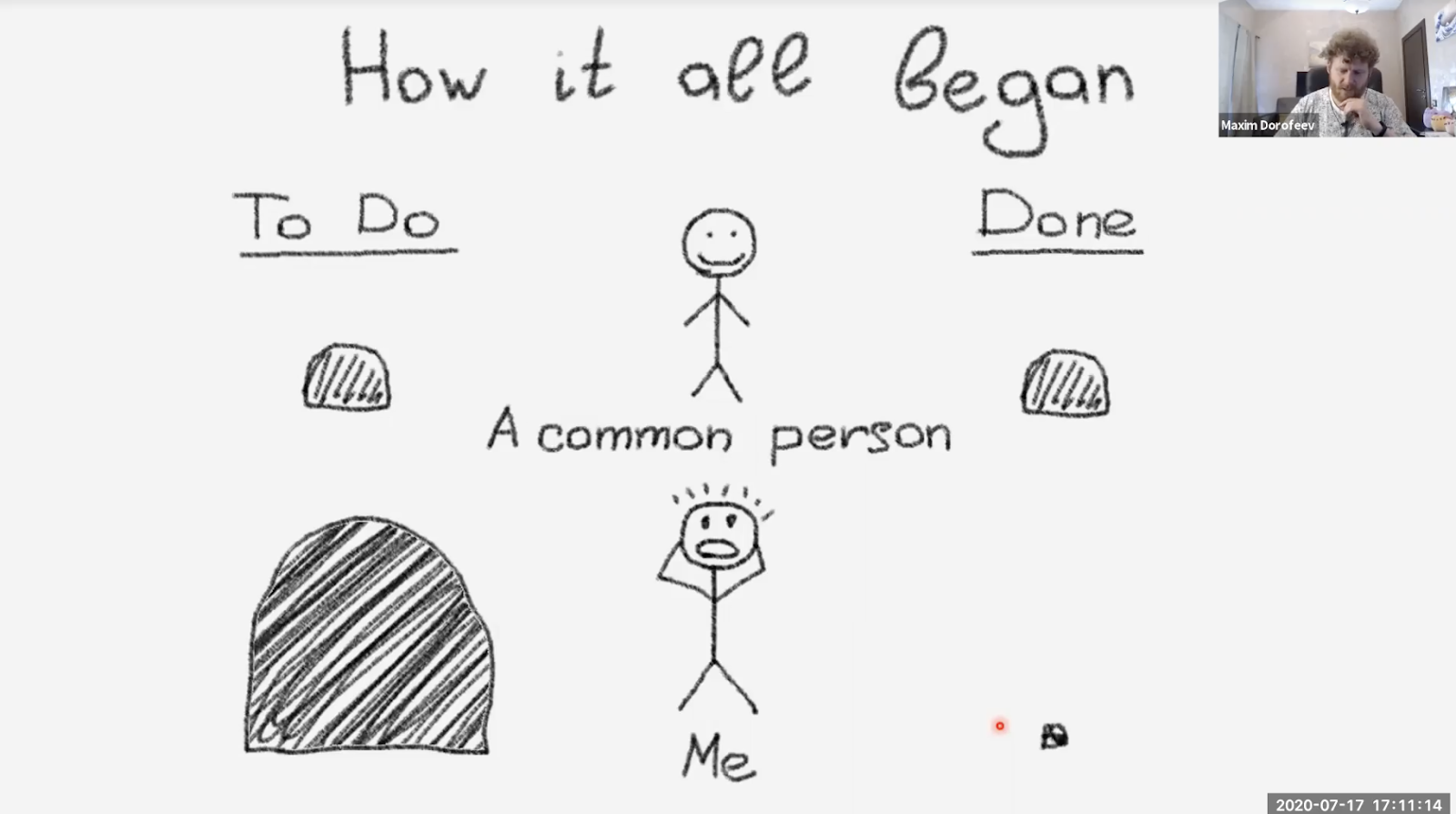
Webinar on combating procrastination from Maxim Dorofeev
And also a seminar on meditation and practice of mindfulness, meetings on cultures of different countries, a Counter-Strike tournament, cool reviews of colleagues' travels, lectures on ecology. Well, remotely there are English lessons, yoga and much more. We also moved online monthly All-hands meetings for all 1000+ Wrike employees around the world with the main achievements and problems of the month, open quarterly results and OKRs, weekly product management meetings, staff meetings for the whole company.

Engineering All-hands June 2020 - Interlude Quiz
When I more or less got used to it, I also conducted mini-team building inside the team: I asked the guys to write down 3 truths and 1 lie about themselves, answer the question of who they wanted to become when they grow up, attach their favorite song and a photo of the workplace. We learned a lot about each other and had a good time. From August, it will be possible to conduct such teambuildings offline - for each person a half-year amount is allocated, which can be spent on an event of the team's choice.

80% of colleagues thought it was a lie, although it is true)
Remembering the kudo cards that I entered in ABBYY mobile phones, I was glad to see a centralized system of "thanks" here - bonus.ly. Each month, everyone is awarded 100 bonus points that can be credited to a Wrike employee in any share for some awesome action. For example, a presentation you liked or help with work.

These bonus points can then be used to “buy” Wrike mementos or donate them to charity.
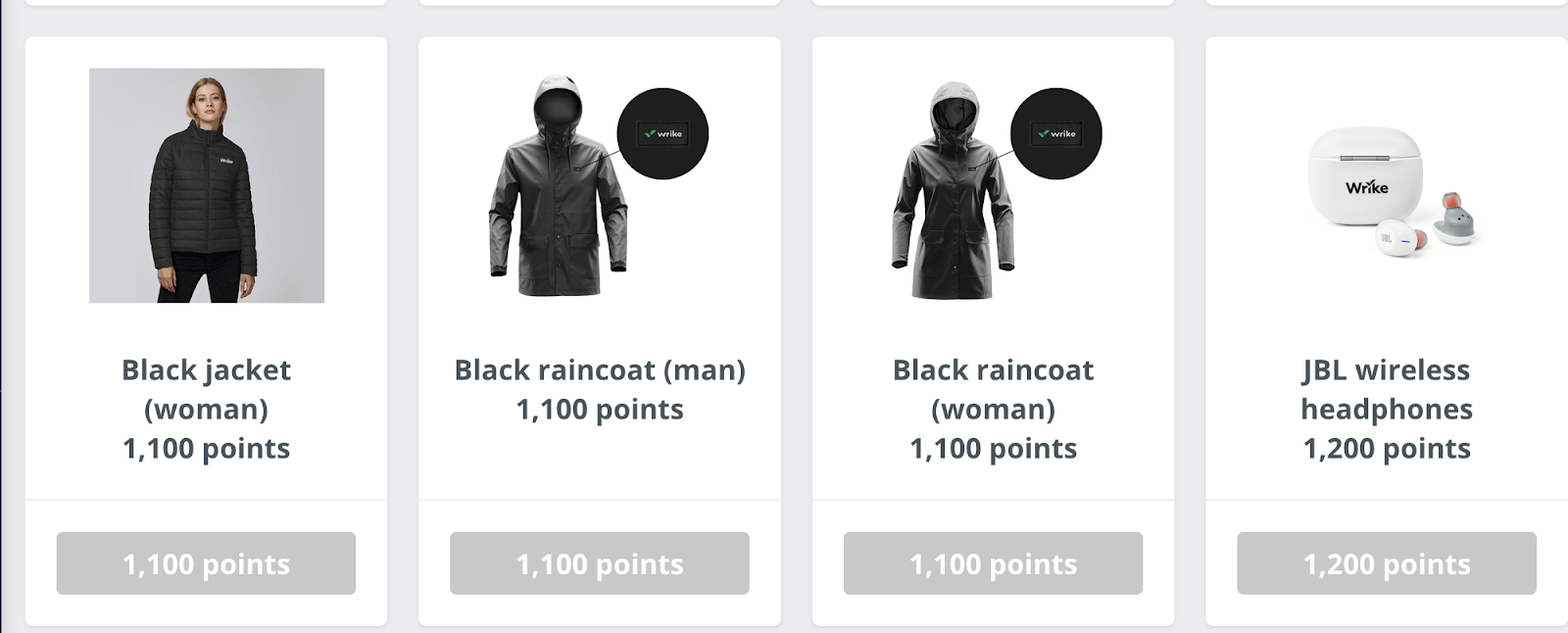
I also really like the corporate Amazon account, from which you can buy, read and listen to books and corporate Kindle. I'm a wild reading fanatic and have had a Kindle myself since 2012.
In general, despite the fears and concerns about changing jobs and moving to another city, it turned out pretty well. Experience has shown that:
- Companies continue to search for people, including an expanded list of deleted jobs. For the first time in their history, many began to look for employees from other cities.
- Companies are redesigning processes to fit the new way of working, so you can really easily switch to a new workplace, even if it is actually hundreds of miles away. Courier services will do everything in the best possible way.
- The crisis made it possible to reduce the costs of moving, and the apartment rental market literally turned upside down, so looking for housing and moving now has become much more pleasant.
In general, if you've really been looking at changing jobs or places of residence for a long time, I advise you to weigh the pros and cons again. Perhaps now is the right time.